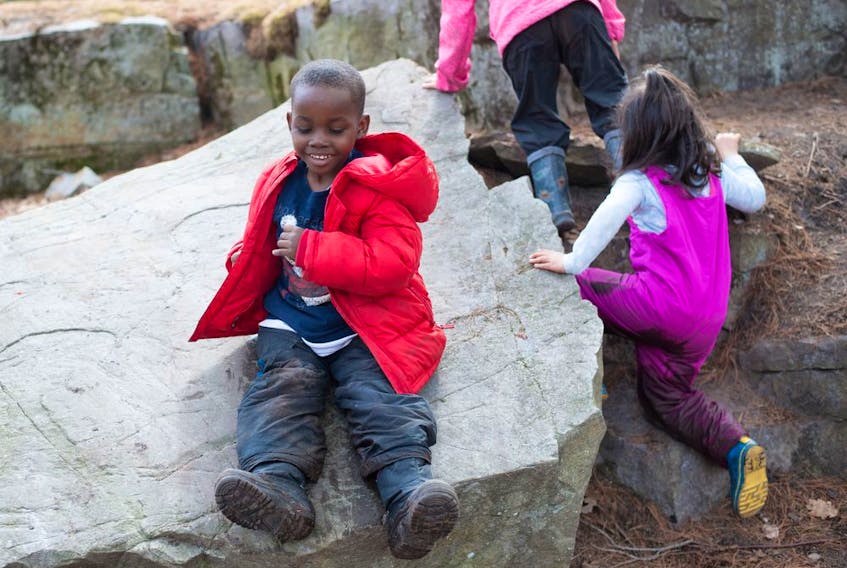RYLAN HIGGINS
It’s never been more obvious that Canada’s adult-child relationships need improvement. This applies broadly, and there are instructive primers on the subject, including a recent special issue of Canadian Dimension.
Two troubling elements of adult-child relationships are:
- the nature of adult authority
- how society attempts to prepare children for adulthood
Critiquing adult authority is a great jumping-off point. For starters, is Canada’s common version of adult authority arbitrary or natural? The anthropological record shows that the form adult authority currently takes in Canada is anything but universal or time-tested.
That children do not play a significant role in creating the rules that shape their own lives is a relatively new development, and there are still lots of places where this arrangement is not dominant, as it is in Canada today. In other times and places, children had and have greater political inclusion, broadly defined.
In most schools, home, and public places in Canada, children operate in social environments where nearly all formal and many informal rules are determined and enforced by adults. Children are assumed to be incapable of producing reasonable ideas about how to live, and thus things like codes of conduct at school get prescribed with virtually no child input.
Rigorous social science shows such rules are often poorly thought out, haphazardly enforced, and problematic concerning the world they create or reinforce. It’s hard to imagine children doing a worse job than adults, for instance, when it comes to school dress codes, playground rules and the like.
Canada’s ideas around what children need to be ready for futures as adults are no less problematic. An especially obvious example here is the oft-emphasized need, starting as young as four, to prepare children for future work lives that will require discipline.
When, for example, I tell adults that my son is homeschooled, people often insist he will have a hard time adjusting to adulthood. He will be expected to work an 8-to-5 job, but, without formal schooling, he won’t develop the behavioural propensity to sit and work quietly, for example, for many hours straight.
Canadians need not subject our children to 12 years of such behavioural training. On the one hand, if my son does need to learn how to sit and work quietly, I think he can pick that up in a lot less than a decade. He’s a quick study. On the other hand, it is possible to create futures that don’t necessitate such drudgery. We simply need to do a better job of imagining what life could be.
Kids are great at this, by the way. Or, at least they are until they start school, according to NASA.
COVID-19 has provided lessons that should have us rethinking these dynamics. As far as I can tell, the plans to restart schools in Canada did not include meaningfully consulting children, and various policy-makers keep insisting that our children will be “behind” if we don’t get them back into classrooms.
To be clear, we need places for our children to spend their time meaningfully, while Canadian adults work. Even so, does it not make good sense to create spaces and opportunities for them that are both inspiring and emancipating, tailored to their own ideas about what a good life is? Are classrooms likely the best fosterers of such spaces and opportunities?
Personal experience demonstrates that children love being in the wilderness. And they become amazingly engaged learners when they are. Sitting in a classroom and behaving according to arbitrary adult-centric rules vs. romping through the woods with collectively agreed-upon goals and parameters — why not allow children to decide which is a better model?
Wilderness exposure is an antidote to the drawbacks of both adult authority and Canada’s bizarre norms around what constitutes life preparedness. In the woods, children can develop autonomy, connection to the living world and communal interest. They can become experts at dealing with novel (dare I use the word) situations — such as a pandemic or climate crisis.
In short, for many decades, Canadian children have been learning according to an educational model that insists that adults know best, including with regard to where learning should take place and what children will need when they grow up. As I look around our society, I am increasingly doubtful of the efficacy and legitimacy of this model.
COVID-19 has laid bare many weaknesses in our society. We are far too eager to return to the way things were before the pandemic. This is evident nowhere more than in our rush to get our children back in classrooms. There’s an argument they should have been somewhere else all along. In the era of COVID-19, it seems especially important to have them spend their time elsewhere.
In determining where, we are hindered only by our lack of imagination. Here is hoping we will give at least a little decision-making power to our children’s imaginations as we try to move through and beyond this especially challenging time in Canadian history.
Rylan Higgins is a professor of anthropology at Saint Mary’s University in Halifax.








